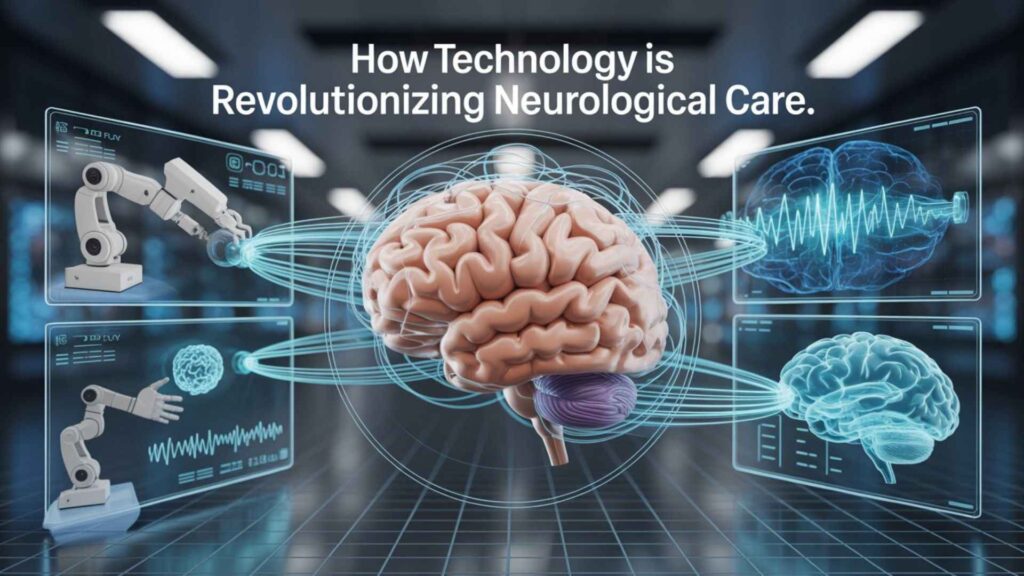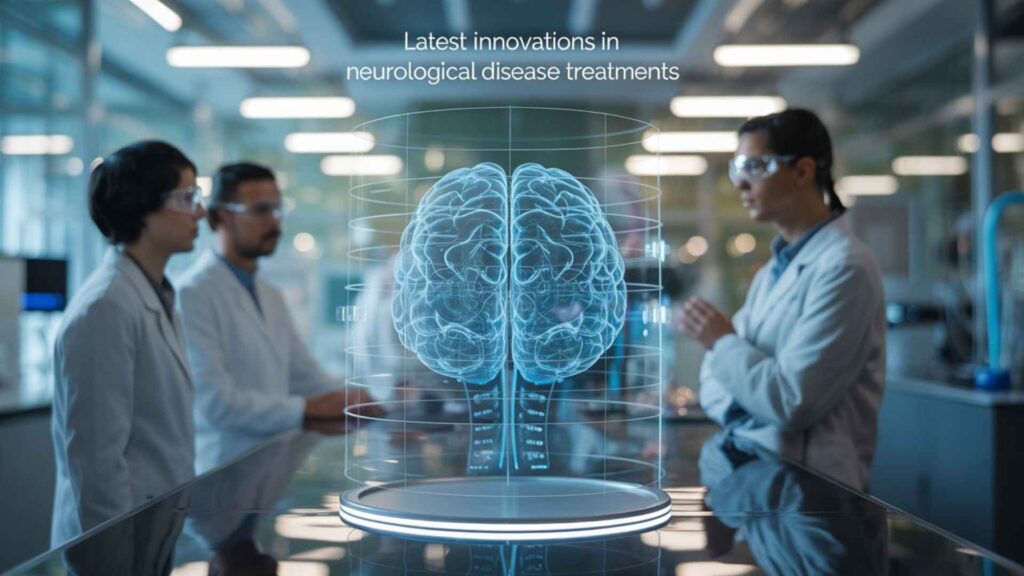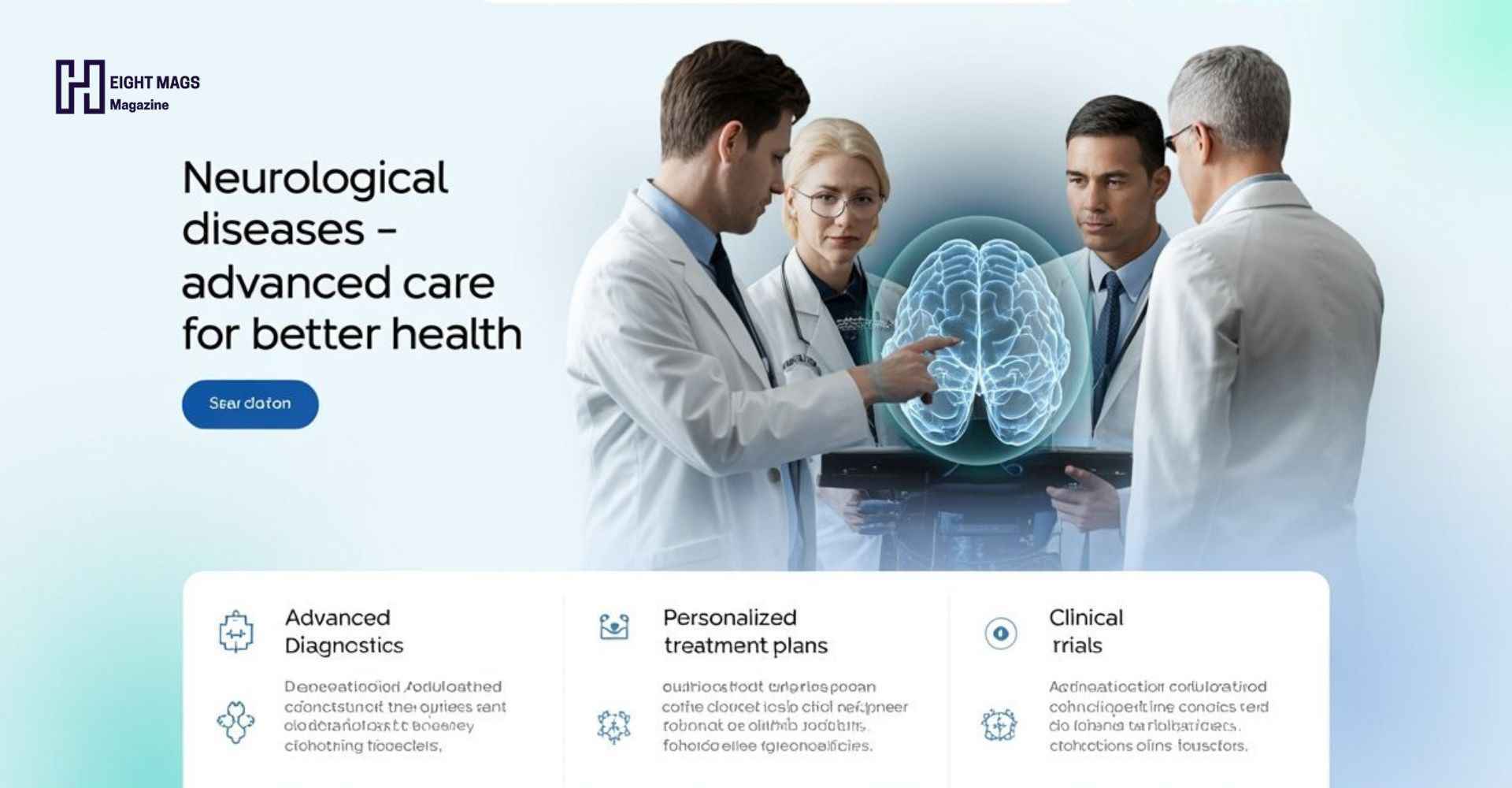Table of Contents
- Understanding Neurological Diseases and Their Impact
- How Technology is Revolutionizing Neurological Care
- Early Detection: A Game-Changer in Neurological Health
- Latest Innovations in Neurological Disease Treatments
- Why Choose Doctorhub360.com for Neurological Care?
- Coping with Neurological Diseases: Practical Tips for Patients
- The Future of Neurological Disease Treatment: What’s Next?
- Conclusion: Empowering Patients with Knowledge and Care
- Frequently Asked Questions About Neurological Diseases
Understanding Neurological Diseases and Their Impact
Neurological diseases affect the nervous system, which includes the brain, spinal cord, and nerves. These conditions can have a significant impact on a person’s quality of life, as they interfere with motor control, speech, memory, and even basic body functions. Neurological disorders, such as Parkinson’s disease, Alzheimer’s disease, and multiple sclerosis, cause progressive impairment, leading to loss of independence and sometimes early death. Symptoms may range from slight discomfort to serious, life-threatening health issues .
For many individuals, the onset of these diseases is gradual. In the early stages, symptoms might go unnoticed or be mistaken for general signs of aging. This makes it harder to get an early diagnosis. However, understanding the key symptoms and risk factors of these diseases can lead to better detection and early treatment. Common symptoms include memory loss, muscle weakness, tremors, and difficulty walking. “Factors such as environment, genetic predisposition, and lifestyle choices can play a role in the onset of these neurological conditions.
Key Symptoms and Risk Factors
There are numerous symptoms of neurological diseases, but the most common include confusion, difficulty concentrating, seizures, and gradual loss of motor control. People may notice shifts in their behavior or personality, which can be quite concerning. The risk factors for these diseases vary, but aging, family history, and lifestyle choices like poor diet and insufficient physical activity contribute greatly to the development of these conditions. Early detection of symptoms is critical in managing these conditions effectively and slowing their progression.
How Technology is Revolutionizing Neurological Care

Technology is transforming the way we approach neurological diseases. It has made accessing care easier and more efficient. Telemedicine, for example, allows patients to consult neurologists from the comfort of their own homes. This is particularly advantageous for patients residing in rural areas or those who find traveling challenging. Virtual appointments enable quick diagnosis and provide timely advice, ensuring that no one misses out on expert care.
Another game-changing advancement is the use of AI and machine learning. These technologies analyze patient data, enabling doctors to diagnose conditions like Parkinson’s disease and Alzheimer’s disease earlier. Data analytics and AI algorithms identify subtle changes in the nervous system, helping doctors make better-informed decisions about treatment options. Additionally, digital health records ensure that all patient information is accessible to healthcare professionals, streamlining care and improving the accuracy of treatments.
Telemedicine Advancements in Neurological Treatments
Telemedicine has seen incredible growth in recent years, especially in the field of neurology. Patients can now easily connect with specialists without having to leave their homes. This is particularly beneficial for managing long-term neurological disorders, where frequent visits to the doctor may be necessary. With virtual appointments, you can receive personalized advice and management for symptoms like tremors or memory loss, all while saving time and reducing stress.
AI and Machine Learning in Disease Diagnosis
AI and machine learning are improving the accuracy of neurological disease diagnosis. By analyzing medical images like MRIs or CT scans, AI can detect early signs of neurological dysfunction that might be missed by the human eye. This early detection leads to faster treatment and better outcomes. The role of AI in diagnosing Parkinson’s disease, multiple sclerosis, and Alzheimer’s disease has become a critical tool in neurology.
The Power of Digital Health Records in Treatment
Digital health records are a powerful tool in treatment management. They allow for real-time tracking of a patient’s health information, which can be shared across different healthcare providers. This ensures that everyone involved in a patient’s care has access to the most up-to-date information. Digital records not only improve the quality of care but also reduce errors and duplication of tests, making healthcare more efficient and cost-effective.
Early Detection: A Game-Changer in Neurological Health
The earlier a neurological disease is detected, the better the chances for managing its progression. Early diagnosis can significantly slow down the disease progression, giving patients more time to adapt and seek the right treatment. Advances in early detection technologies, such as imaging techniques and genetic testing, have greatly improved the ability to identify conditions like Parkinson’s disease and Alzheimer’s disease before they cause irreversible damage.
The Importance of Timely Diagnosis
Receiving an early diagnosis can result in more effective treatment choices and an improved quality of life. Conditions like multiple sclerosis and neuromuscular diseases are progressive, so early detection is essential in preventing permanent damage. With early intervention, doctors can start treatment management immediately, which can delay the onset of severe symptoms and complications.
Breakthroughs in Early Detection Technology
Recent breakthroughs in technology have made early detection of neurological diseases more accurate. Advanced imaging tools, such as functional MRI, allow for precise visualization of brain activity and abnormalities. AI-powered tools are also being developed to detect changes in brain activity before symptoms even appear, providing valuable insights into the patient’s condition.
Latest Innovations in Neurological Disease Treatments
Recent developments in neurological disease treatments are making a real difference in the lives of patients. From medications that manage symptoms to surgical advancements that offer permanent solutions, new therapies are emerging daily. Innovations like deep brain stimulation are giving Parkinson’s disease patients a new lease on life, while disease-modifying therapies are slowing the progression of multiple sclerosis.

Cutting-Edge Medication Therapies
Medications such as Levodopa and donepezil are helping to manage symptoms of Parkinson’s disease and Alzheimer’s disease. These drugs help patients regain some lost function, improving motor control and memory. Disease-modifying therapies (DMTs) are being used for multiple sclerosis to slow its progression and improve quality of life.
Surgical Advancements in Neurological Care
Surgical techniques like deep brain stimulation (DBS) are transforming the way we treat neurological diseases. DBS involves implanting a device that stimulates specific areas of the brain, helping to manage symptoms like tremors, stiffness, and slow movement in Parkinson’s disease. These surgeries are less invasive than traditional approaches, resulting in shorter recovery times and better outcomes.
Non-Invasive Treatments for Neurological Disorders
There is an increasing trend toward non-invasive treatments for neurological diseases. Wearable devices that monitor brain activity are helping patients with conditions like epilepsy and Parkinson’s disease detect seizures or motor problems before they worsen. These devices can alert patients or caregivers, giving them a head start in managing symptoms and preventing harm.
Why Choose Doctorhub360.com for Neurological Care?
Doctorhub360.com is a leading platform for neurological care that connects patients with the best resources and specialists. The website offers a comprehensive range of online resources, from expert advice to treatment options and support groups. By using Doctorhub360.com, patients can gain access to personalized care, diagnosis, and treatment management, ensuring that their journey with neurological diseases is supported at every step.
Expertise and Advanced Technology
With Doctorhub360.com, you’ll find that the platform is powered by cutting-edge technology. It provides virtual consultations and access to specialist consultations, ensuring that patients receive the best possible care. The use of AI, data analytics, and telemedicine allows patients to stay connected with healthcare professionals no matter where they are.
Personalized Treatment Plans for Every Patient
Each patient’s needs are unique, and Doctorhub360.com understands that. The platform offers personalized treatment plans tailored to the specific needs of the patient, ensuring the best possible care. Whether it’s managing symptoms, seeking a second opinion, or finding a support community, Doctorhub360.com provides comprehensive services to meet every patient’s requirements.
Coping with Neurological Diseases: Practical Tips for Patients
Living with a neurological disease can be challenging, both physically and emotionally. It requires adjusting to new symptoms, managing daily tasks, and finding support. However, with the right resources, patients can maintain a good quality of life. Support from family members and caregivers plays a vital role in helping patients manage their condition.
Managing Symptoms with Lifestyle Changes
Making certain lifestyle changes can help patients manage their symptoms better.Ongoing physical and speech therapy can help enhance motor skills and communication abilities. Additionally, a well-balanced diet and regular exercise can help patients maintain their strength and mobility, which is essential for slowing disease progression.
Mental Health and Support for Patients
Mental health is a crucial aspect of neurological disease care. Patients often experience feelings of anxiety, depression, and isolation as they cope with their condition. Support groups and counseling services can provide patients with the emotional support they need. Doctorhub360.com offers resources to help patients connect with mental health professionals who specialize in neurological conditions.
The Future of Neurological Disease Treatment: What’s Next?
The future of neurological disease treatment looks promising with new advancements on the horizon. As technology continues to improve, we can expect to see even more breakthroughs in early detection, personalized treatment, and disease management. From robotic surgery to wearable healthcare devices, the next decade promises a revolution in neurological care.
Emerging Technologies Shaping the Future
The future of neurological diseases will likely be shaped by smart healthcare technologies, such as wearable devices that can track symptoms in real time. This will allow for quicker response times, better treatment outcomes, and personalized care.
Innovations on the Horizon for Neurological Diseases
Innovations in AI and robotic surgery will continue to revolutionize neurological care. Surgeons can now perform highly precise, minimally invasive surgeries, while AI can assist in more accurate disease monitoring and treatment management. These advancements will significantly improve patient care and outcomes in the coming years.
Conclusion: Empowering Patients with Knowledge and Care
Doctorhub360.com offers patients access to a wealth of information, resources, and expert support, ensuring they receive the best care available. With early detection, personalized treatment plans, and access to cutting-edge technology, patients can feel empowered to manage their neurological diseases effectively. By staying informed and seeking appropriate care, neurological diseases no longer have to control your life.
FAQS :
What Are the Early Signs of Neurological Diseases?
Early signs include memory loss, tremors, difficulty moving, and changes in speech. It’s important to seek early diagnosis if you notice any of these symptoms.
How Can I Prevent Neurological Disorders?
While some neurological diseases are genetic, adopting a healthy lifestyle with regular exercise, a balanced diet, and mental wellness can reduce your risk of developing certain conditions.
What is the best treatment for Parkinson’s disease?
The best treatment for Parkinson’s disease typically includes medications like Levodopa to manage symptoms. Additionally, deep brain stimulation (DBS) and physical therapy are often recommended to help with motor control and mobility. Doctorhub360.com offers personalized care plans tailored to each patient’s unique needs.
How does telemedicine work for neurological diseases?
Telemedicine enables patients with neurological conditions to connect with specialists from a distance.Through virtual appointments, doctors can assess symptoms, monitor disease progression, and adjust treatment plans without the patient needing to visit the clinic physically. This is particularly helpful for patients living in isolated areas or those facing mobility challenges.
Can lifestyle changes help manage neurological disorders?
Yes, lifestyle changes can significantly improve the management of neurological diseases. Regular physical therapy, a healthy diet, and sufficient rest can help slow disease progression. Speech therapy can help improve communication abilities for individuals with neurological conditions impacting speech and motor skills.

